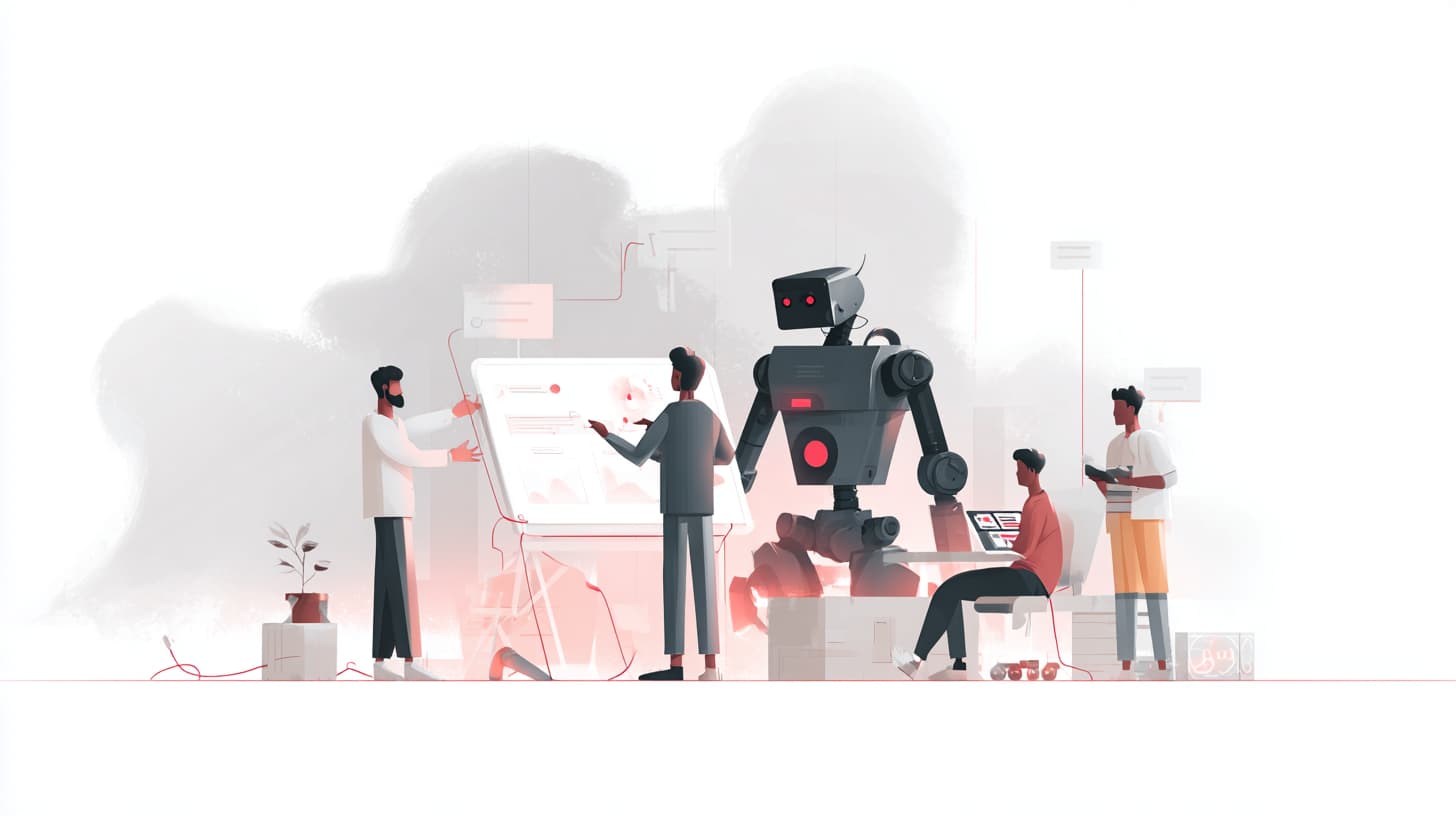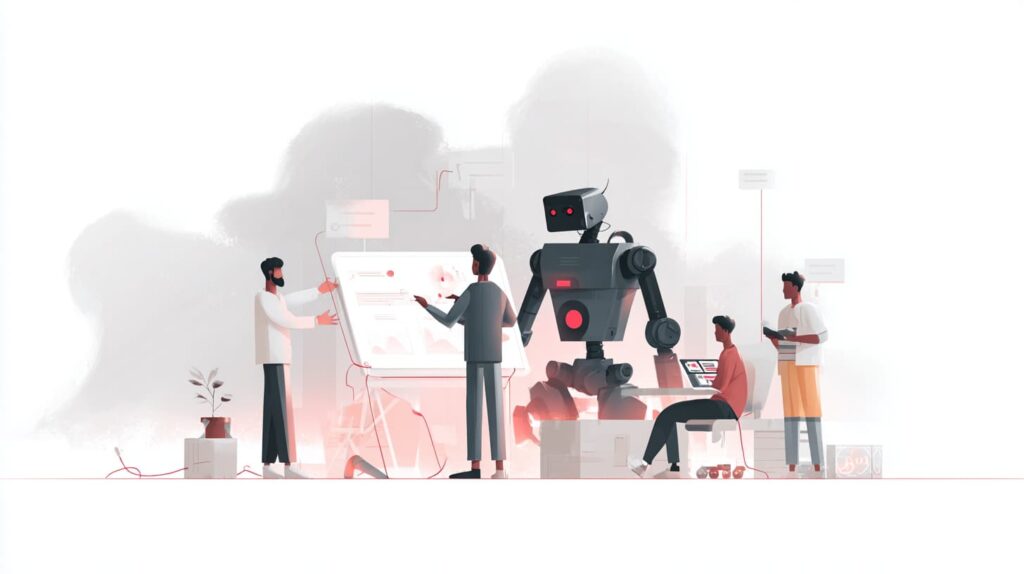By EloInsights
- A discussion convened by the 100 Startups to Watch list brought together AI specialists and startup leaders.
- The main topic centered on applying artificial intelligence to drive new business models.
- The consensus is that, in most cases, AI should be viewed today as an essential competitive differentiator.
The technology and innovation landscape has been profoundly reshaped in recent years by the rapid popularization of artificial intelligence, especially with the rise of generative AI. In the realm of disruptive innovation, this transformation raises a crucial question for Brazilian startups: is integrating AI into your business still a choice, or has it become a non-negotiable requirement to remain competitive?
At the opening of the online discussion ‘AI in Action,’ hosted by Pequenas Empresas & Grandes Negócios as part of the eighth edition of 100 Startups to Watch, industry specialists and startup leaders pointed to a decisive shift: in most cases, adopting AI is no longer optional but an essential requirement for survival and growth—even as each business must find its own implementation path and avoid the trap of hype-driven adoption.
The webinar featured André Franco, partner at EloGroup; Eduardo Peixoto, CEO of CESAR; Fernanda Clarkson, cofounder of SuperFrete; and Helson Santos of Logstore, moderated by reporter Rebecca Silva.
The 100 Startups to Watch list is produced by Pequenas Empresas & Grandes Negócios (PEGN), Época Negócios, and Valor Econômico, in partnership with EloGroup and Innovc, and highlights the most promising companies in entrepreneurship, technology, and innovation across Brazil’s key economic sectors.
AI as a Condition for Competitiveness and Survival
The main question discussed was whether AI is still a choice for startups or has become an obligation. The consensus was that, for internal efficiency and operational processes, using AI is increasingly a matter of survival—comparable, as André Franco put it, to running a marathon in high-performance shoes versus shoes with holes. By contrast, building AI into the startup’s product or service is a strategic choice that depends on its scope of activity.
AI is viewed as fundamental for boosting operational efficiency and productivity in startups. Helson Santos cites ‘parallel learning,’ where, for example, a front-end developer can acquire design skills with the help of AI, leading to more efficient and cost-effective development. This helps reduce operating costs—vital for SaaS businesses to prove profitability and achieve scaling (growing revenue with the same team) rather than headcount scaling (increasing the team in step with sales).
AI-Driven Product Development and Novel Solutions
AI brings greater efficiency to the development cycle, from understanding requirements through testing. The concept of ‘vibe coding,’ in which code is written with AI tools, is seen as an irreversible shift. AI accelerates the launch of new features while keeping development intentional, strategic, and focused. It also enables solutions once thought impossible—such as a real-time Libras (Brazilian Sign Language) translator or a smart lipstick for people with motor or visual impairments—significantly improving the user experience, according to Eduardo Peixoto.
It was emphasized that the first step in adopting AI is not technological but human. Key skills include curiosity, creativity, and a willingness to experiment without fear of failure, preferably within a controlled sandbox. Team members must learn quickly and be willing to ‘forget what they learned yesterday to start something new now.’ It’s essential to shape the team’s mindset to embrace AI as a tool that amplifies solutions and personal growth, overcoming the perception that it is a threat. SuperFrete, for example, invests heavily in training and development to promote this cultural shift.
The consensus is that AI will not replace co-founders or make employees disposable. Instead, it acts as a ‘skilled assistant’ or ‘copilot.’ Large companies that tried radical approaches—such as replacing developers with AI agents—ultimately reversed course, indicating that this is not an effective path. The goal is to augment human capabilities, providing a competitive edge and strategic runway for startups in their critical phases.
The Impact of AI on Sales
AI acts as a copilot for sales reps, helping unlock deals and deliver hyper-personalized experiences. It also reduces the need for extensive training amid high turnover, improves offer targeting, and recovers revenue potentially lost to purchase failures by suggesting swaps or upgrades. In addition, it opens new avenues for training sales teams by mapping gaps and providing targeted coaching where each seller needs it most.
AI can handle the first customer touch as a digital concierge, cutting wait times and resolving common questions (like order-status checks). It can even proactively notify customers about delays, which can drive higher satisfaction (NPS) than a technically perfect but silent experience. Since human teams can’t personalize at scale, AI enables more tailored and accurate communication with target audiences.
Data Security Considerations
Despite the benefits, it’s essential to consider data-security risks. Teams must understand the risks of placing highly confidential data into AI systems. AI experimentation should occur in a controlled environment to mitigate risks and prevent leaks. Compliance with data-protection laws such as Brazil’s LGPD is crucial, especially when user data is involved. It’s also vital to ensure that data sources remain up to date and accessible so AI models don’t become stale.
A key point discussed was the importance of avoiding AI ‘hype.’ A startup’s primary focus should always be the problem it is solving, with technology as the means to that end. It’s essential to assess whether AI truly makes sense for the solution and whether the team is prepared to adopt it.
Collaborating With Large Enterprises: Opportunities for Startups
There is growing openness among large companies to collaborate with startups that offer AI solutions. They are seeking specialized offerings—especially those that can quickly incorporate advances from big tech, such as real-time offer personalization. There is also room for startups in the ‘analytics kitchen,’ preparing and structuring high-quality data for AI and integrating into corporate data ecosystems.
The discussion showed that AI is a powerful catalyst transforming how startups operate, develop products, engage customers, and even organize internally. It is not a magic wand, but a sophisticated tool that—when used with strategic intent and a focus on real problems—amplifies human ingenuity. Like an experienced chef using cutting-edge technology to create innovative dishes, the technology doesn’t replace creativity; it extends its reach, provided the ingredients (data, team, ethics) are well prepared.
https://www.youtube.com/watch?v=esO7e2xk5fM











